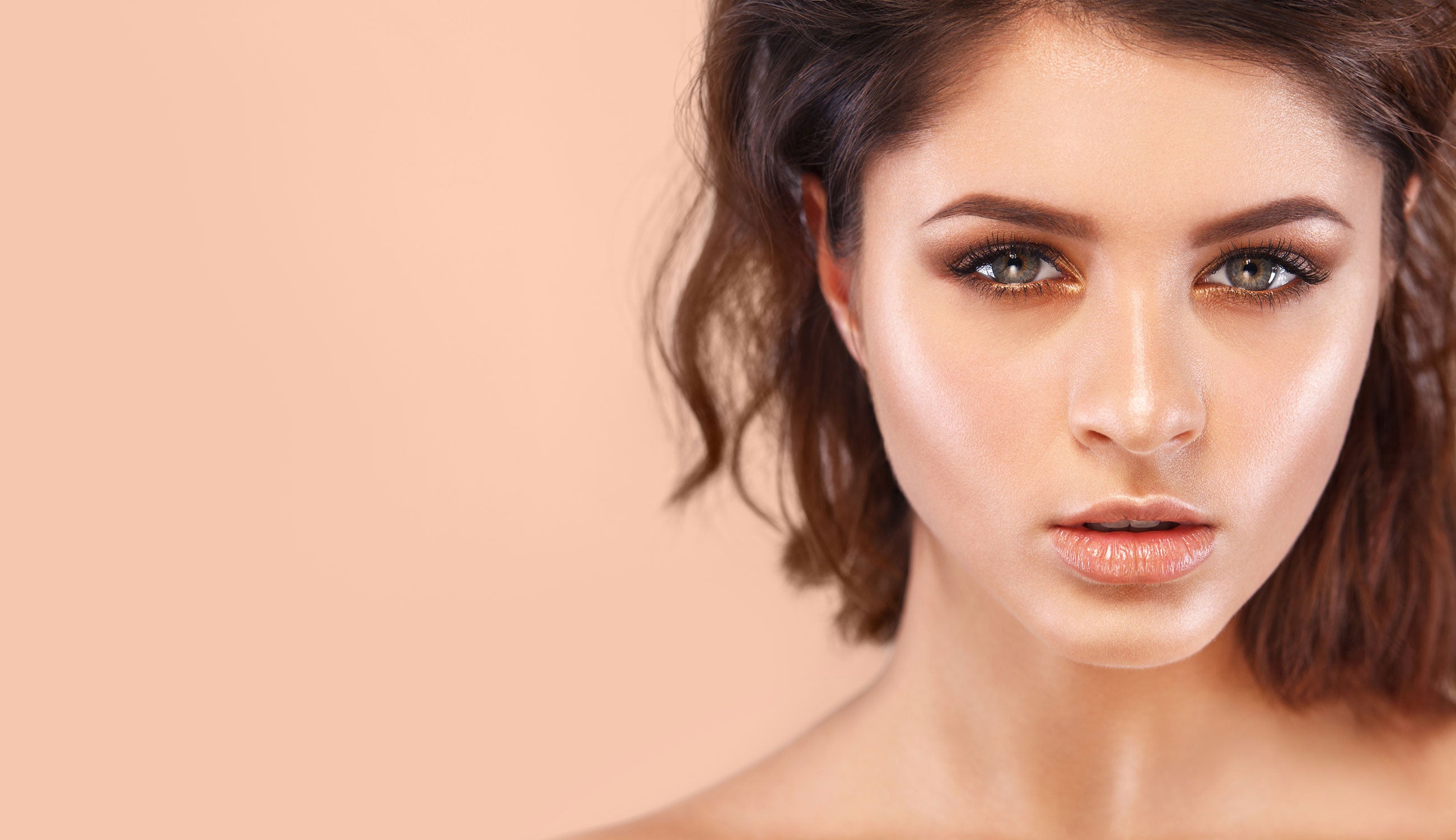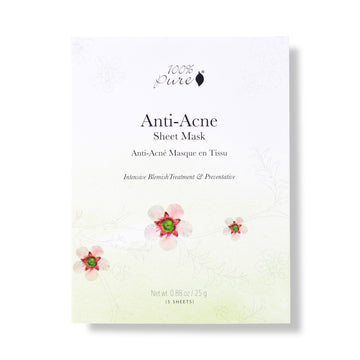What each of them do in acne vs. anti-aging products, their benefits for your skin, and the primary differences between these two powerful groups of skin care acids
Written by: 100% PURE®
Alpha hydroxy acids and beta hydroxy acids are skin care ingredients that can be found in a variety of products, for concerns from anti-aging to acne. Though their names may sound intimidating, alpha and beta hydroxy acids tend to be relatively gentle ingredients that are often derived from plant sources.
Both AHAs and BHAs are effective exfoliants, and can help to boost your glow by helping your skin to shed dead cells. They’re often found in cleansers, toners, and face masks but, unlike many other exfoliants, they can often be used on a daily basis.
 Alpha Hydroxy Acids
Alpha Hydroxy Acids
The effects of water-soluble alpha hydroxy acids tend to be limited to the surface of your skin. When you apply a mask, a cream, or another product that contains alpha hydroxy acids, it’ll help to eliminate dead cells from your skin’s surface. This will soften your skin, help to even out your complexion, and possibly also encourage collagen production.
Alpha hydroxy acids are often found in anti-aging products due to their potential to enhance the skin’s outer appearance. They’re commonly derived from fruits, including apples and citrus fruits (although lactic acid is derived from dairy products). Alpha hydroxy acids include:
-
Glycolic acid: Derived from sugar cane
-
Lactic acid: Derived from dairy products and fermented produce
-
Tartaric acid: Derived from grapes
-
Citric acid: Derived from citrus fruits
You can read more about alpha hydroxy acids, and their uses in anti-aging skin care products, in our recent deep-dive on AHAs.
The fact that beta hydroxy acids are oil soluble makes them especially effective when applied to oily, acne-prone skin. These acids are able to penetrate your skin’s surface through your follicles, sinking more deeply into your skin tissue than alpha hydroxy acids. Not only do beta hydroxy acids help to exfoliate your skin and clear up your pores, they also have antibacterial and anti-inflammatory properties to help fight breakouts. If you suffer from acne blemishes from blackheads and whiteheads to more severe pustules and papules, beta hydroxy acids might be a strong addition to your beauty arsenal.
The best-known (and most commonly used) beta hydroxy acid is salicylic acid. This BHA is usually derived from the bark of willow trees, and is found in clarifying products from cleansers to toners to face masks. You can find it in our Anti Acne Masks: easy-to-use sheet masks that help to clear up problem skin while keeping it hydrated and supplied with nutrients.
Things to Keep in Mind When Using AHAs or BHAsWhile AHAs and BHAs can work wonders for different skin types, it’s important to keep in mind that these ingredients may cause heightened sun sensitivity in some users. While the FDA has confirmed that these ingredients are safe for use in everyday skin care products, they also recognize that these ingredients can make skin more sensitive to UV rays--potentially increasing your risk of hyperpigmentation, premature skin damage, and skin cancer. In particular, salicylic acid is thought to be a culprit of increased skin sensitivity. This doesn’t mean that you need to cut AHAs and BHAs out of your skin care routine; but if you do choose to take advantage of these ingredients’ benefits, you should take extra care to protect your skin against the sun.
Some beauty buyers (especially those who already suffer from sensitive skin) may find that AHAs and BHAs irritate their skin. Before using any product that contains these ingredients on your entire face, we recommend testing the product on a small patch of skin. Also, make sure to check out the instructions on the product’s label before applying it, and try to avoid using it more frequently than the instructions recommend.
AHAs and BHAs are powerful, natural skin care ingredients--but it’s important to supplement your use of exfoliants with the right toners, serums, and moisturizers in order to keep your skin healthy and hydrated. You can check out our post on streamlining your skin care routine to find more product recommendations for your skin type, or use our online product finder to put together a personalized routine.
- Tags: March-2019, Skin Care
We carefully hand-select products based on strict purity standards, and only recommend products we feel meet this criteria. 100% PURE™ may earn a small commission for products purchased through affiliate links.
The information in this article is for educational use, and not intended to substitute professional medical advice, diagnosis, or treatment and should not be used as such.


